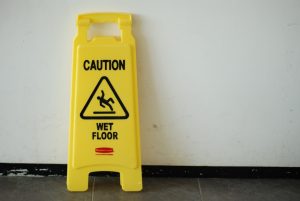
Knowledge Base / News
 Your business continuity plan is designed to make sure your organization doesn’t suffer from downtime, data loss, and physical damage. There are a wide range of factors that make up your business continuity plan, and many of them will most likely focus on cyber security measures.
Your business continuity plan is designed to make sure your organization doesn’t suffer from downtime, data loss, and physical damage. There are a wide range of factors that make up your business continuity plan, and many of them will most likely focus on cyber security measures.
While data security and protection against external cyber threats is important, it’s also critical that your organization consider how environment monitoring can greatly reduce your chances of downtime and data loss. After all, damages caused by environment factors cost over $306 billion dollars in 2017 alone.
If your organization’s business continuity plan doesn’t include dedicated environment monitoring, here’s four ways that it can help improve your uptime and security.
30% of downtime incidents that result in data loss aren’t caused by hackers or malicious software – they’re caused by environment factors. High temperatures can lead to hard drive failure, as can high humidity within your facility. Power loss is also a leading cause of data loss, as a blackout during a storm or sudden inclement weather can cause immediate data loss if preparations aren’t made in advance. Environment monitoring can alert your staff the moment environment factors begin creeping towards areas that can cause data loss.
Your organization is only as strong as its employees allow it to be. Studies have shown that adverse conditions such as high temperature, high humidity, and rapidly cycling temperatures can cause health-related issues with your employees. A healthy staff is a productive staff, and ensuring proper working conditions is a big step towards improving business continuity. Monitoring the environment of your office, warehouse, and storage areas can help ensure your employees are working in a safe space that allows them to work to their maximum potential.
There are a wide range of environment factors that can cause damage to your inventory, or anything else you might be storing in your facility. If you rely on refrigerators and freezers as a restaurant, food storage facility, or medical lab for instance, losing a compressor or having a power failure could be catastrophic. Temperatures can rise quickly in these types of situations, ruining food or critical medication. Environment monitoring can alert you when storage unit temperatures start creeping upwards, warning of potential issues that can severely impact your organization.
 Limits physical damage to facilities
Limits physical damage to facilitiesAn unexpected water leak can cause havoc on any type of organization. Flood damage can occur when frozen pipes burst, a roof begins to leak, a construction accident nearby impacts your building… all those situations greatly impact your ability to continue normal operations. Those situations also usually lead to insurance claims, damage repairs, and the possibility of your facility not being usable by your employees for a period. Monitoring for water leaks and high humidity can warn you of possible environment concerns, allowing you to investigate before water or damage is noticeable. High temperature combined with humidity can also lead to mold damage, which will require remediation as well as potentially impacting the employee wellness mentioned earlier.
Every building maintains smoke and fire alarms to help prevent fires. It stands to reason that with so many other potentially hazardous and damaging environment factors that can drastically impact your organization, your business continuity plan needs to have an environmental monitoring component.
Ensuring your network and data are protected with firewalls and security software are always crucial to your organization’s uptime, yet those factors that every organization has in place fail to recognize the 30% of downtime incidents caused by environment factors. In fact, statistics from the US Small Business Association also show that 25% of organizations don’t even have a business continuity plan, which is a major problem.
When building or reviewing your business continuity plan, be sure to include environment monitoring to maximize your organization’s uptime, and help monitor all the factors that can cause you to lose valuable revenue and the ability to stay in business.

You may find Windows Command Prompt at the following path:
To run Windows Command Prompt as an administrator:
| Current S models | Current E models |
|---|---|
| Room Alert 32S | Room Alert 32E |
| Room Alert 12S | Room Alert 12E |
| Room Alert 3S | Room Alert 4E |
| Room Alert 3E | |
| S models | E & W models |
|---|---|
| Room Alert 32S | Room Alert 32E |
| Room Alert 12S | Room Alert 12E |
| Room Alert 3S | Room Alert 4E |
| Room Alert 3E | |
| Room Alert 3W |
| Model |
|---|
| Room Alert MAX |
| Room Alert 32S |
| Room Alert 12S |
| Room Alert 3S |
| Room Alert 32E/W |
| Room Alert 12E |
| Room Alert 4E |
| Room Alert 3E |
| Room Alert 3 Wi-Fi |